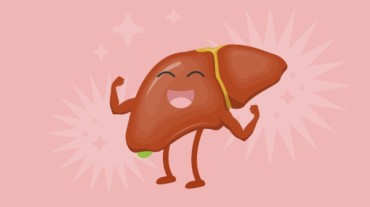
The Covid-19 pandemic pulled us out of our socially buzzing life and pushed us into the parapets of our homes. The communication with the outside world was via phones, smartphones and laptops. Anxiety, fear, depression clouded many people’s minds and a whole lot of them drowned their sorrows in booze. For some, even the daily work-from-home duties would end for some in a ‘cheers’! But wait, that may not be the best idea. A new study has projected the rates of liver disease and associated deaths due to increased alcohol consumption during the Covid-19 pandemic.
In fact, whether it is safe to drink alcohol after getting the Covid-19 vaccine was one of the more popular queries after the vaccination drives began!
As the new research indicates, increased alcohol consumption really looks like of the many unintended consequences with a long-term impact, arising out of the Covid-19 menace.
The research, published in the ‘Hepatology Journal’, involved a team led by investigators at Massachusetts General Hospital. They used data from a national survey of US adults on their drinking habits, and it was found that excessive drinking (such as binge drinking) increased by 21 per cent during the Covid-19 pandemic.
That’s definitely an alarm that should wake us all up!
According to reports, the scientists simulated the drinking trajectories and liver disease trends in all US adults. They estimated that a one-year increase in alcohol consumption during the Covid-19 pandemic will result in 8,000 additional deaths from alcohol-related liver disease, 18,700 cases of liver failure, and 1,000 cases of liver cancer by 2040.
In the short term, alcohol consumption changes due to Covid-19 are expected to cause 100 additional deaths and 2,800 additional cases of liver failure by 2023.

“Our findings highlight the need for individuals and policymakers to make informed decisions to mitigate the impact of high-risk alcohol drinking during the Covid-19 pandemic in the US,” said senior author Jagpreet Chhatwal, PhD, associate director of MGH’s Institute for Technology Assessment and an assistant professor of radiology at Harvard Medical School.
Experts hope these finding spark conversations about the right response to the many behavioural changes, coping mechanisms, and choices that have short- and long-term implications for the health of individuals, families and communities.
According to a 2018 observation by the World Health Organization, alcohol consumption causes death and disability relatively early in life. In the age group 20–39 years approximately, 13.5 percent of the total deaths are alcohol-attributable.
Select Topics of your interest and let us customize your feed.
PERSONALISE NOWIn fact, alcohol consumption is a causal factor in more than 200 disease and injury conditions. Drinking alcohol is associated with a risk of developing health problems such as mental and behavioural disorders, including alcohol dependence, major noncommunicable diseases such as liver cirrhosis, some cancers and cardiovascular diseases, as well as injuries resulting from violence and road clashes and collisions.
Also Read: Coping with the pandemic with booze? Enlist these 6 liver-healthy foods to do some damage control

It also hampers immunity, in case you didn’t know!
Dr Ankur Garg, Director, Surgical Gastroenterology and Liver Transplant at Metro Hospitals and Heart Institutes, says liver can take up to an hour to process up to 90 percent of consumed alcohol or one alcoholic beverage. However, this time frame increases with each drink.
“Higher the alcohol content, the longer it takes to process it, which is the reason why when you consume excessive alcohol, the alcohol that’s left unprocessed circulates in the body, and starts affecting your brain and heart,” he wrote in a column for HealthShots.
(With inputs from ANI)